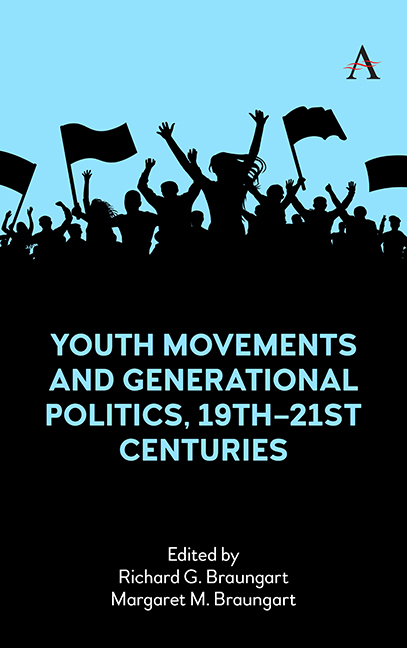7 - Youth Movements in the 1980s: A Global Perspective
Published online by Cambridge University Press: 18 November 2023
Summary
Using a broad definition of youth movements, this study examines the extent and type of youth movement activity throughout the 1980s in the major regions of the world. The objectives of the investigation are to determine: (1) how much youth movement activity has occurred between 1980 and 1989, (2) over what issues young people have mobilised and protested, (3) whether the 1980s youth movements are similar to those of the 1960s, and (4) how the various youth movements of the 1980s may be explained. Based on information taken from news sources, manuscripts, books and journals, youth movements that occurred from 1980 to 1989 are described for each global region. The findings of the study, while not exhaustive, indicate that there was widespread youthful political protest throughout the world over many issues, with the youth movements of the 1980s representing both a continuation and departure from the 1960s Generation. The extensive youth movement activity of the 1980s is partially rooted in significant global changes and trends—most notably, a decline in East-West superpower influence; different issues of concern among youth in the Northern hemispheric countries versus those in the Southern hemispheric countries; and the rise in cultural pluralism, self-determination and political activity in every global region.
Youth movements
Youth movements represent organised and conscious attempts on the part of young people to initiate or resist change in the social order. When traditional institutions fail to meet the legitimate needs of age groups in society, and when a critical number of people become aware of their common plight and feel something can be done to alleviate their problems, generational or, in this instance, youth movements, may appear. The perceived discrepancy between the individual needs or aspirations of young people and the existing social and political conditions lies at the root of youth unrest.
Youth movements are not random behaviour but are direct responses to historical events and forces. From a national perspective, the emergence of political activity among youth would be expected to occur in countries undergoing rapid transformations, where, for a variety of reasons, the particular mix of circumstances tests the ability of a political system to perform necessary functions and services. Countries that experience institutional instability along with weakened legitimacy and effectiveness provide the ideal environments for protest behaviour.
- Type
- Chapter
- Information
- Youth Movements and Generational Politics, 19th-21st Centuries , pp. 145 - 168Publisher: Anthem PressPrint publication year: 2023

